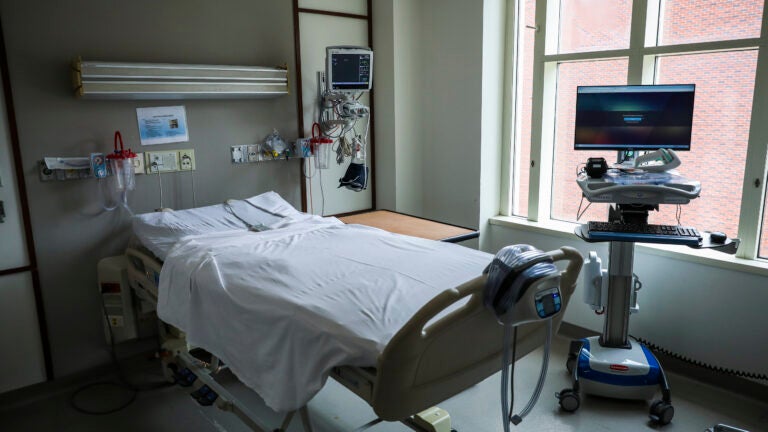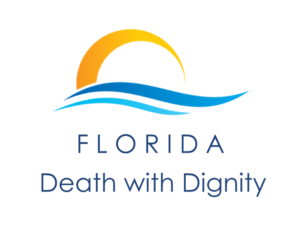We asked readers for their thoughts on medical aid in dying. Here’s what they said.
“I am 84 and have no desire, to put it bluntly, to be tortured to death. I’ve seen loved ones die — old people.”

When it comes down to if the state should allow medical aid in dying, the results from a sampling of our readers weren’t even close.
Of the just over 250 people that responded to the survey, 227, or 92 percent, said they favor the measure while just 15, or 6 percent were against it. Another four respondents chose “other,” making up 2 percent of the vote.
The state is currently considering a bill that would allow for medical aid in dying under very specific circumstances, particularly for those who are terminally ill with only six months or less to live. The patient must also complete a 15-day waiting period, and have their request approved by a mental healthcare provider.
Medical aid in dying laws have already been passed in neighboring states, including Vermont and Maine; the first was in Oregon in the mid-1990s.
There are strong opinions on both sides. Those in the pro camp say the laws in other states have worked flawlessly. Michael Martinetti, who lives in Lexington and has a rare neuromuscular disease, says he wants “the autonomy” to make his decision.
Those in the against camp say there should be better care for people nearing the end of their lives, and that the new law would “essentially decriminalize” doctors helping patients end their lives.
“We’ve made a lot of progress in recent years in increasing communication about end-of-life preferences,” Dr. Laura Petrillo, a palliative care doctor at Massachusetts General Hospital, said during a press conference “There’s much more to do to ensure that people have access to high-quality medical care period, but especially end-of-life care, and resources to have care that’s aligned with their goals at the end of life.”
For medical aid in dying
For some readers, their desire to see the bill passed comes after seeing loved ones suffer immense pain at the end of their lives with a terminal diagnosis.
“Neither the state nor any religion should have a say in this,” Mark from Easthampton said in explaining why he voted “yes” for medical aid in dying. “My mother WANTED to die because she had no quality. She loved reading and she was going blind, she loved golf and she couldn’t play any more, she was tethered to [oxygen] 24/7 and was becoming incontinent.”
As a retired psychologist, Mark said he knew his mom wasn’t depressed. She would’ve met the criteria for medical aid in dying, he said.
“She would have met the criteria in the current bill,” he said. “Instead, she experienced a cruel death by oxygen starvation, panting for 5 days. No one should have to go through it. It was torture to watch.”
Another reader said they’ve seen others die painfully.
“I am 84 and have no desire, to put it bluntly, to be tortured to death,” David Ball wrote. “I have seen loved ones die — old people.”
Another said they believe in life decisions being human rights.
“Others should have no say over one’s life and death,” Jean Williams from Wakefield, Rhode Island, wrote. “One can believe in their right to die, or not want to make that choice, based on one’s own religious beliefs, without requiring others to conform to their personal beliefs.”
Here’s what some other readers said:
“Bodily autonomy should exist from birth up to and including death when it doesn’t directly impact others. Circumcision, birth control, birth plans, DNRs, end-of-life directives — they are all a part of each individual controlling their respective lives. Other people’s discomfort with someone else’s autonomy should not be allowed to interfere with someone being able to make their own life choices for themselves.” – Elizabeth, Concord
“Ask anyone how they hope to die, they will say after [a long] life and asleep. This bill helps people who won’t ever get that chance to have some semblance of control over their last moments.” – Jessica, Reading
“It gives the patient a dignified way to pass away, instead of living in pain or degenerative way of life needing machines to keep you alive.” – Unidentified
Against medical aid in dying
In the against camp, one reader said they don’t think doctors should have a hand in death.
“Physicians should not be part of a process that actively promotes death,” Robin, of North Vassalboro, Maine, wrote.
Another reader cited religion.
“I am totally against the proposal because it is for our Creator alone to take our life at the time and way He wills,” Mary from Holyoke wrote.
A reader who is a nurse pushed for better end-of-life care.
“We need better palliative care, hospice, and healthcare providers who are educated and comfortable to talk about goals of care,” Aaron Langlois from Pennsylvania said.
One reader said they believe in medical aid in dying under specific circumstances.
“Open-heart surgery patients often feel like suicide during recovery up to a year. After that, the urge goes away. Tread carefully…” an unidentified reader from Massachusetts wrote.
Another reader, a psychiatric and mental health clinical nurse specialist, said they’re unsure.
“I am a psych CNS and I am against suicide, but also don’t want to prolong suffering if someone is terminal,” the unidentified reader from Massachusetts wrote.

 Previous Post
Previous Post Next Post
Next Post